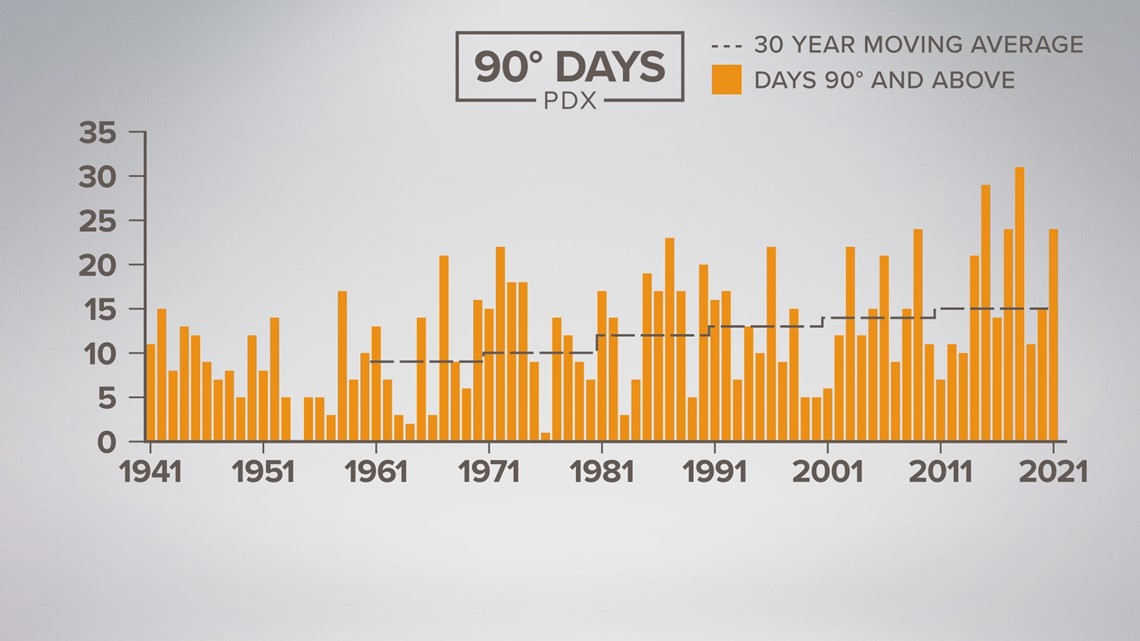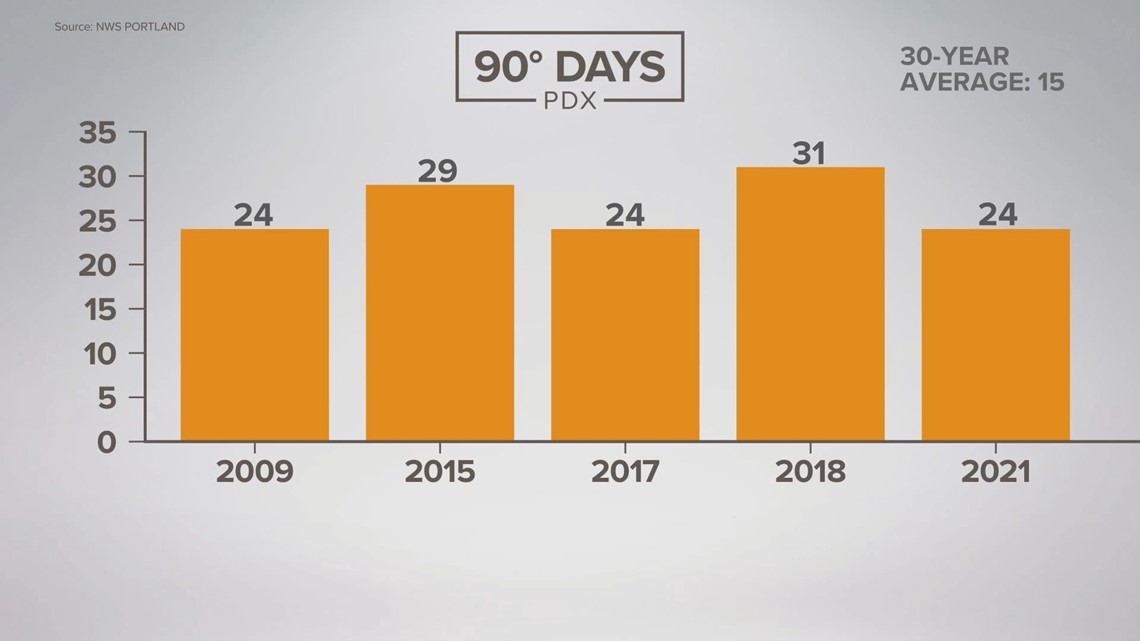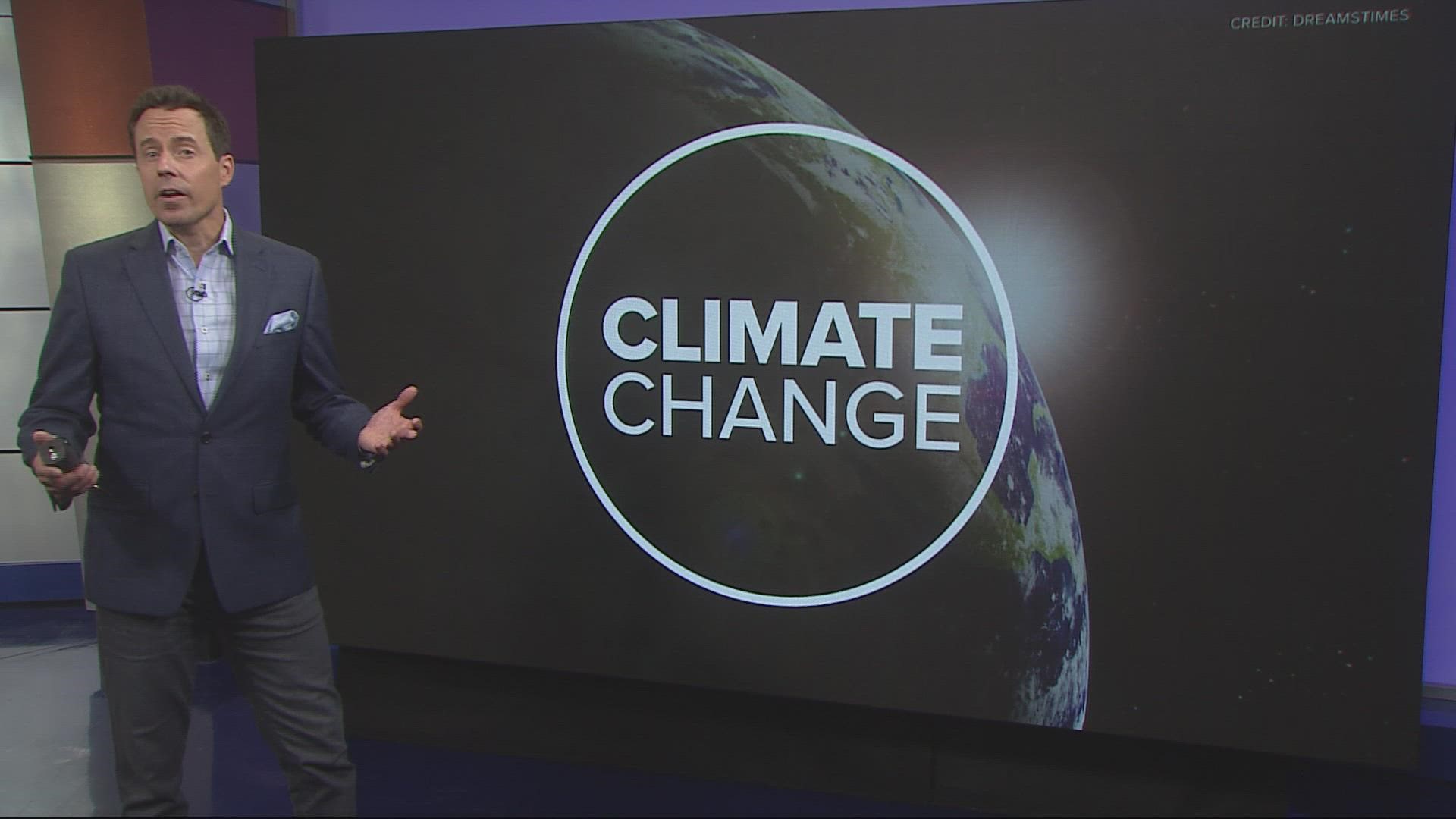PORTLAND, Ore. — Recent Portland summers have brought an increasingly familiar parade of heat waves, wildfires and smoggy air. In a city historically known for its sunny-yet-benign summer weather, it's enough to make residents start to speculate or even declare it outright: Hotter is the new normal.
But is that literally true? Individual Portlanders certainly feel that way whenever the mercury climbs above 90, but is Portland actually experiencing more frequent hot temperatures?
To arrive at a more scientific answer, we turned to KGW meteorologist Chris McGinness and Larry O'Neill, Oregon's State Climatologist and an associate professor at Oregon State University.
THE QUESTION
Are Portland summers getting hotter?
THE SOURCES
- Larry O'Neill, Oregon State Climatologist
- Portland International Airport temperature data
THE ANSWER
Yes, hotter summers have become the new normal in Portland — literally.
People often use the word "normal" to describe the general kind of weather they expect based on their personal experiences, but the term also refers to specific measurements in meteorology and climatology.
WHAT WE FOUND
In climate data terms, "normal" is a moving 30-year average of temperature, precipitation and other weather conditions. The averages are recalculated every decade based on the preceding three decades of weather data.
"We often use the '30-year normal' (measurement) because it's most indicative of the weather we remember, and that we’ve experienced in recent past," O'Neill said.
It's a long enough time period to smooth out short term swings in the data caused by recurring weather phenomena like El Niño, La Niña and the Pacific Decadal Oscillation in order to figure out the clear long term trends. And when it comes to temperatures, the long term trend is very clear.
"Underlying all those trends is a very, definite, systematic rise in temperatures and other variables as well," O'Neill said.
Daily temperature records have been kept at Portland International Airport since 1941. The upward trend in the average number of days with 90-degree or hotter temperatures in Portland over the past 81 years is impossible to miss.


From 1941 to 1970 the average was 9 days per year, then 10, then 12. In the most recent tabulation ending with 2020, the 30-year average for 90-degree heat in Portland was up 15 days.
Narrowing the scope to look at individual years shows that five of the hottest summers on record at PDX, in terms of number of 90-degree days, have all occurred in the last 14 years. And 2022 is well on its way to earning its own spot near the top of the chart.


The hotter summers are driven by the steadily rising level of carbon dioxide (CO2), in the Earth's atmosphere, which warms the surface.
"We know the correlation from many decades work studying exactly how CO2 affects the climate system, the radiation, the warmth of the planet," O'Neill said.
The annual peak of CO2, measured in parts-per-billion, is increasing. And while the greenhouse gas warms the lower atmosphere, it's also having the opposite effect — cooling — in the upper atmosphere.
"It's something we call a climate change fingerprint," O'Neill said. "We can actually measure that from weather balloons and satellites. It’s a very strong piece of evidence."
CO2-driven warming contributes to everything from increased wildfire frequency and toxic algae blooms in our waterways to the heat waves and other severe weather outbreaks that have hit across Oregon this summer.
Oregonians are probably directly paying more for it too, in the form of higher electricity bills for summer air conditioning.
One potential way to save is to sign up for PGE's Smart Thermostat Program, which provides incentives for PGE customers who allow the utility access and control of their thermostats to help manage the grid during peak demand. PGE has xx-customers already enrolled.
Chris McGinness is a meteorologist and transportation reporter for KGW. Got a story idea or a great photo you want to share? Email him at cmcginness@kgw.com or reach out on Facebook , Twitter and Instagram

